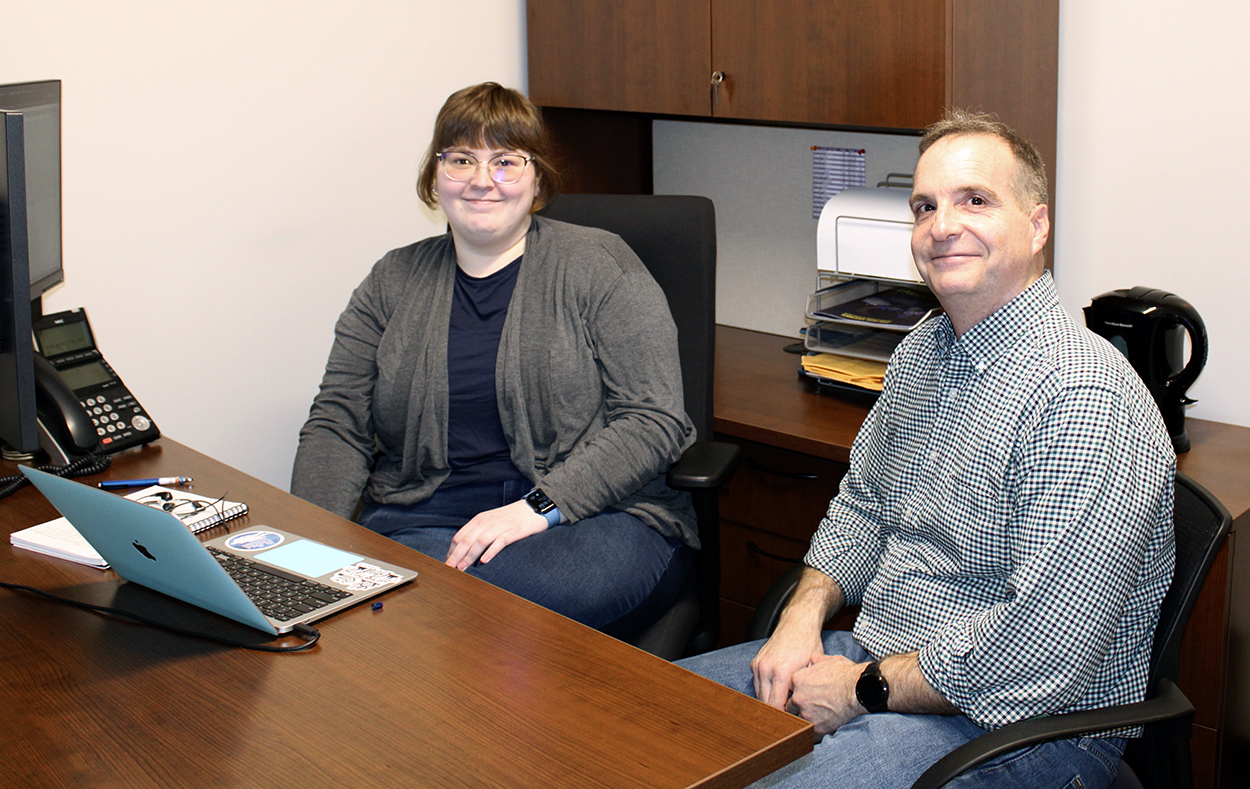Computer Science
Computer science research assistantships: Q&A with Katie Brown

Known as RAs, these students work with professors and are paid monthly stipends for their contributions.
Katie Brown, a fifth year Ph.D. candidate majoring in engineering with a concentration in computer science, is an RA who works with Professor Doug Talbert, Ph.D. She is also a machine learning research consultant with the College of Engineering.
Here’s what Brown, who plans to graduate this summer, had to say about her research experiences at Tech:
Q. What is your focus in computer science?
A. My CS focus is data science/machine learning and health informatics. If you’ve never
heard of health informatics, you can think about it as the intersection between computer
science and medicine.
Q. When did your research begin?
A. I started my undergraduate degree at Tennessee Tech University in 2014. (Fun fact:
I was a sophomore when the CS student organizations were beginning to use Discord,
so I knew a time without Discord). I began as an undergraduate RA to Dr. Doug Talbert
in the spring of 2016, investigating what continuous machine learning would look like
in a medical setting. When I started graduate school in 2018, I concentrated on uncertainty
quantification in machine learning. This project, with its focus in medicine, began
to take shape in October 2021.
In addition to my dissertation work, I am the primary student consultant for the College of Engineering’s Machine Learning Research Consulting Service. This effort was co-founded by Dr. Talbert, Dr. William Eberle and I in the fall of 2022; however, I’d been helping others on their machine learning projects (with permission from my advisor) before then. So, starting this position was a natural extension of work I was already doing. There are two primary reasons I enjoy it. First, I get to help people. Second, I get to learn about different research that happens on campus.
Q. What are you working toward through your research?
A. I am investigating and developing techniques to better operationalize uncertainty
in machine learning models for medical tasks. Uncertainty in machine learning is a
lot like uncertainty in how we think and make decisions – that feeling of “I don’t
know.” For a computer, it’s not a feeling but a measure of how often it makes the
same decision under specific conditions.
Understanding when and why uncertainty occurs is a missing piece in making machine learning more trustworthy to end-users. The crux of my research is taking the uncertainty value and translating it into something that is more interpretable to non-experts in machine learning. The specific medical tasks I work on are trauma triage, emergency medicine (patient triage and outcome prediction) and medical image analysis. The end goal of my research would be a suite of algorithms that others could use to understand the uncertainty in their machine learning tasks. Although my focus is health informatics, the techniques could be applied to any domain that uses machine learning. I’ve been thinking about turning my finished research code into an open-source tool, but that is down the line.
As for my machine learning research consulting work, I welcome researchers and research students (working with a faculty advisor) from across campus who are using or are considering using machine learning to schedule an appointment with me here: https://forms.gle/rrkbPtfAmV9mwKK48. My consulting usually consists of discussing whether machine learning is right for their research problem, potential algorithms, validation techniques and some troubleshooting. I am taking appointments Mondays, Tuesdays and Wednesdays from 8-11 a.m.
Q. Why are you interested in doing research on this topic?
A. I truly believe this work has the potential to do some good. I’ve been blessed to
get to work on and with technology that can determine if a patient needs more advanced
medical care based on data accessible to a paramedic, and this technology is advanced
enough for us to potentially understand why it’s uncertain.
Q. How far along are you in your efforts?
A. I have three algorithms/techniques I want to investigate. Two are on the latter half
of being done, and one is in the prototype phase.
Q. What else would you like to share about your research?
A. I want to give a shout-out to the undergrads I am working with: Matthew Beech, Ethan
Owens and Kate Phillips. I also want to give my gratitude to the College of Engineering
for funding my machine learning research consulting position.
Learn more about graduate assistantships: https://www.tntech.edu/engineering/programs/csc/graduate-assistantships.php

